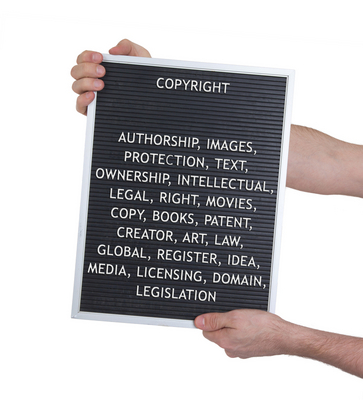Intellectual Property Copyright – Protect your content from plagiarism
Plagiarism is a serious offense that involves the stealing and use of another person’s ideas, language, expressions or thoughts. While plagiarism is not a criminal offense it is seriously shunned in academic circles where expectations for honesty, integrity and ethical conduct are a strong part of the culture. Journalism and higher education are two professions where the act of plagiarism is not tolerated. Copyright laws exist to help safeguard printed materials and works of music.
Copyright Laws
What are copyright laws and how do they protect a person’s printed, visual or musical ideas from being stolen by another individual? Copyright laws are designed to grant a person exclusive rights to the material they create. In other words, if a person creates a unique song, book or video production they will be the sole owners of their work. If any other person, group or organization copies or uses his/her work without the author’s permission they can be taken to court. This is also true for plagiarism.
Plagiarism is a serious offense because a person who commits this act is purposely taking another person’s work and calls it as own work. This type of act undermines a person’s creative ability and it infringes on the rights to the material they created.
How are Acts of Plagiarism Carried Out?
Plagiarism is usually carried out in the following ways:
- When a person claims that another individual’s work is their own.
- People who use another person’s words or ideas without acknowledging that individual.
- On purposely not citing a source or attributing a false name to a source.
- Using media (with or without permission) from an online source and claiming it as your own.
- Using copyright music for a video when permission was not granted for this purpose.
- Using photos from other sources without permission or citing the source.
- Recreating a visual work in the same way.
These are some of the primary ways that people plagiarize material.
What can an author do to protect themselves from Plagiarism?
The first thing that an author should do is to learn how to file a copyright notice. US copyright registration is a crucial step for authors who want to protect their material. Keep in mind that a person’s work is protected once they have produced written or musical material. Or when they have placed it in a video format.
First a person should register their material with the U.S. Copyright website after it has been created. Next, they will need to fill out a standard application for their material from the U.S. Copyright Office. A copyright template can also be used for this process. Once a form has been filled out they will pay a registration fee. Copies of their work must be sent to the U.S. Copyright Office. At this point a person’s material will be legally registered and protected under the law.
I hope this post helped – please do share your experiences as well via a comment.


Leave a Reply
You must be logged in to post a comment.